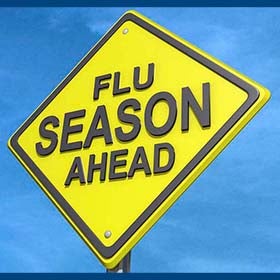It’s the start of flu season in Maryland, and while the severity of the influenza virus varies from year to year, experts suggest flu shots and other preventative measures help minimize widespread infection. According to reports from the CDC, last year was a high severity season with high levels of outpatient and emergency room visits for flu-like symptoms and a geographically widespread flu activity for an extended period.
To help prevent the flu, experts at Ascension Saint Agnes recommend getting the flu shot before October 31.
“It takes two weeks for the flu shot to take full effect to protect against the virus, which is why it’s important to get vaccinated now before flu season starts to get bad,” said Dr. J. William (Bill) Cook, IV, President, Saint Agnes Medical Group.
Experts at Ascension Saint Agnes share four commonly asked questions about the flu and how to prevent it:
- When is flu season? Flu viruses are most common during the fall and winter, although they can be found year-around in the United States and may be more prevalent in certain regions at certain times. According to the CDC, viruses usually begin in October and peak between December and February.
- Who should get the flu shot? Each year the influenza virus comes in different forms, and the seasonal flu vaccine is updated to better match the flu virus that is expected to be most common. According to the CDC, the flu vaccine typically protects against several forms of the virus, and it’s recommended that everyone 6 months or older receive the flu shot annually.
- Who is most at risk? The flu can affect all populations, but the highest risk of complications typically occur among pregnant women, children under five years of age, the elderly, and individuals with chronic medical conditions, according to World Health Organization. Because of their close contact with the virus, healthcare workers are also at a higher risk.
- Aside from a flu shot, what can I do to prevent the flu? A number of additional precautions can be taken to ensure you avoid contracting the flu, including avoiding close contact with those who are sick and washing your hands regularly. Physicians also recommend getting plenty of sleep and covering your mouth and nose when coughing or sneezing. This year, the CDC has included the nasal spray flu vaccine in its annual recommendations.




